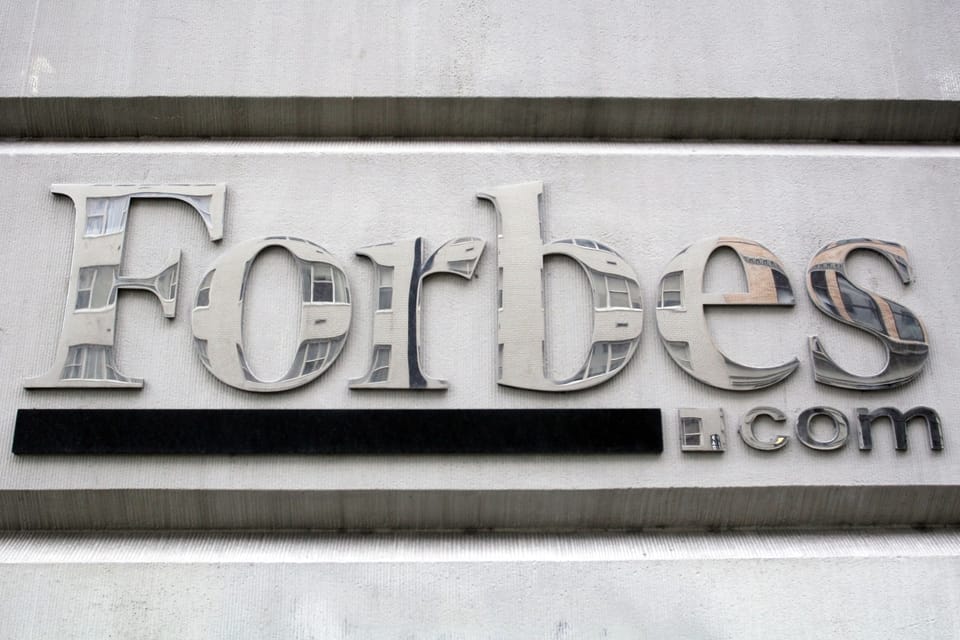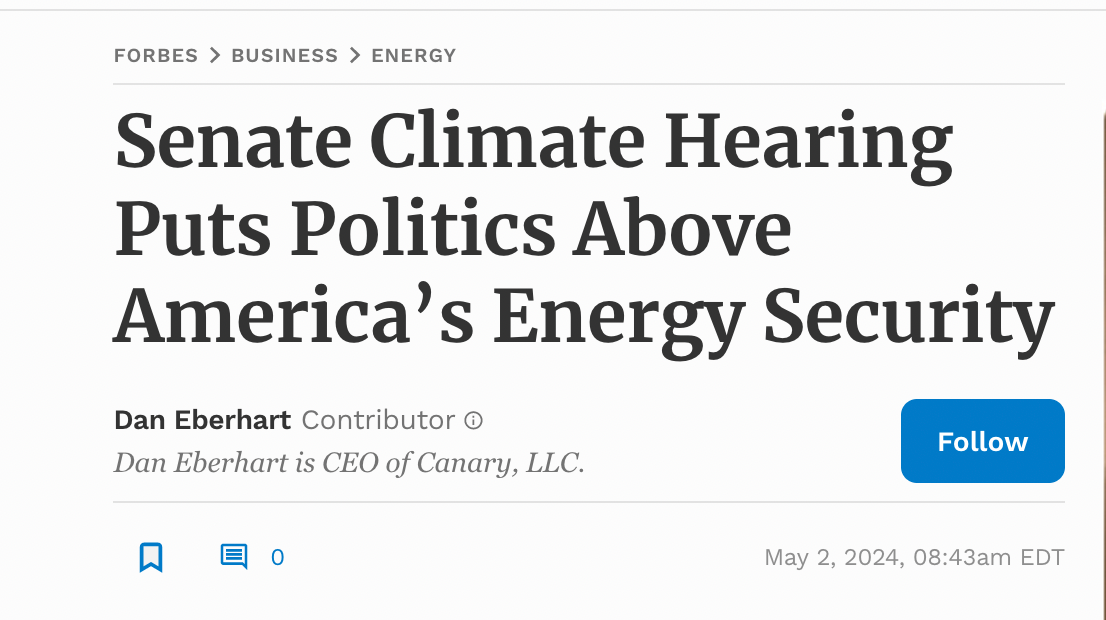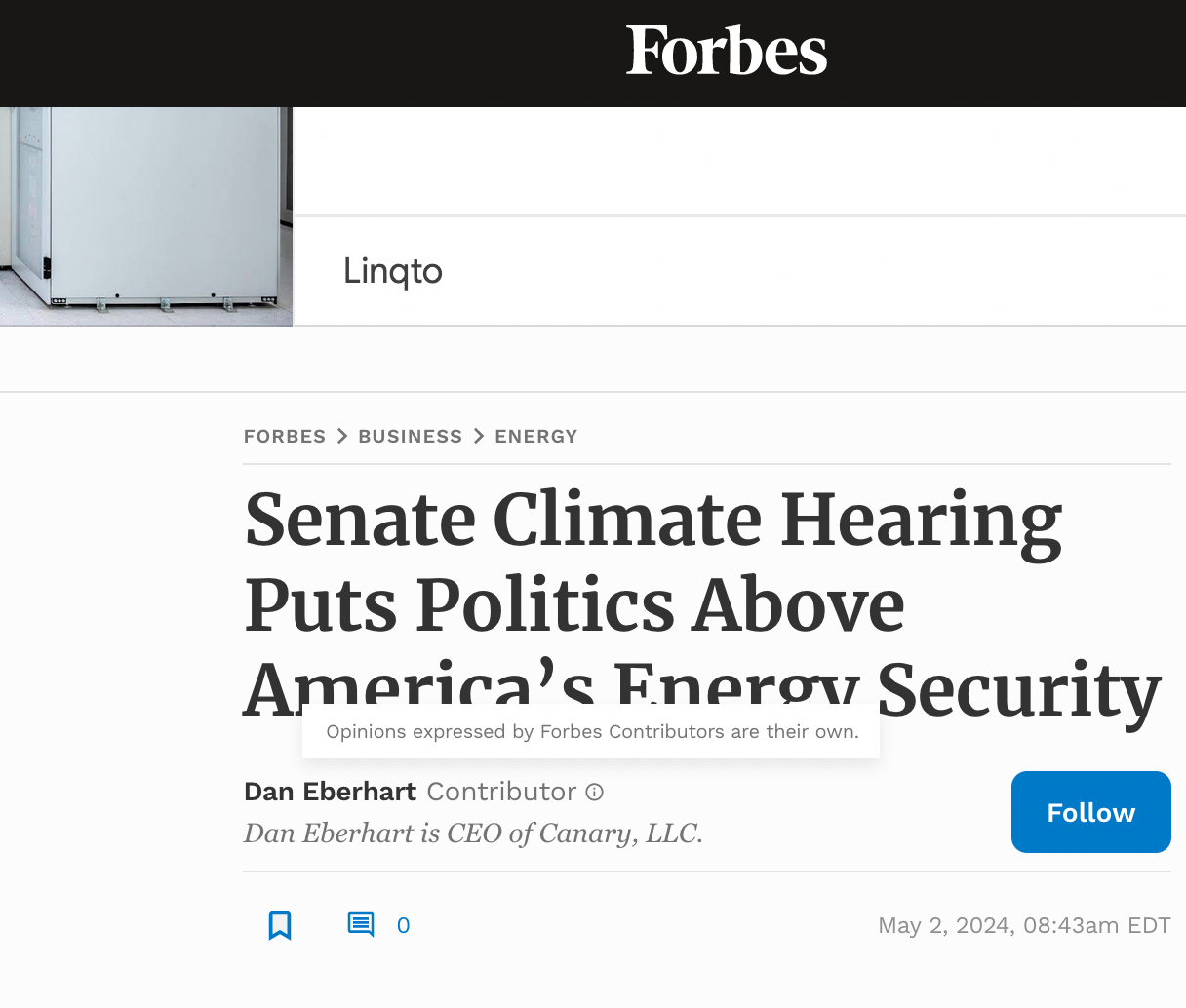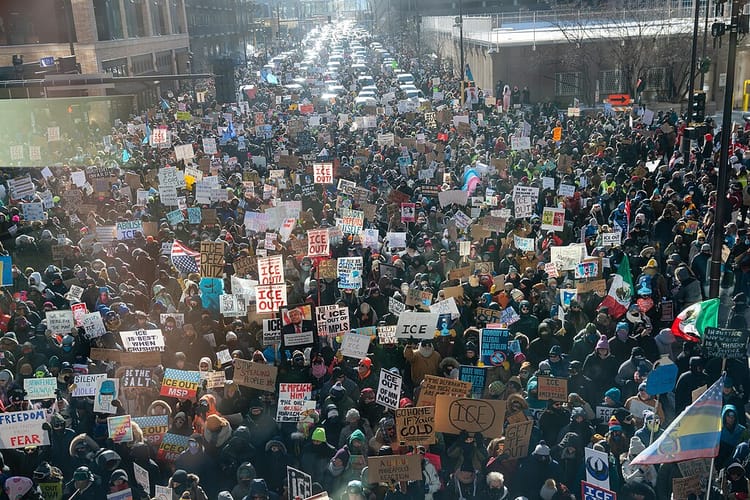How Forbes Pushes Climate Delay

Ten years ago—TEN—I wrote a blog post on Medium about manufactured thought leadership. At the time, I had been occasionally agreeing to ghost write thought leadership pieces for CEOs and executive directors, because I was broke and it paid well, plus it required very little time and minimal actual thought to make these guys seem smarter than they were. Sometimes these posts would just go on the company blog, but more often than not they were being published on actual news sites: HuffPost, VentureBeat, Pando Daily, Inc.com, Entrepreneur.com, and, most often, Forbes. (After my post published, Pando Daily announced their strict no ghostwriting policy and removed the post I'd written.)
The reasons to stop ghostwriting for CEOs were legion and are probably obvious, but chief amongst them was that, as an actual editorial contributor to Forbes at the same time that I was being paid to ghost write contributor posts, I could see first hand the damage that this whole system was doing. Here's what I wrote back then:
From June 2011 to April 2013, I was a contributor to Forbes.com. When I started, most of the other contributors were journalists, too. But by the time I stopped, we were in the minority. Most of us had been driven out by a combination of the abysmally low pay—$50 a post, which doesn’t really allow for the sort of reporting time required to write a decent story—the click-bait incentives (a $500 bonus if you hit 30,000 uniques, plus a penny more for each unique after that), and the fact that the site had been all but taken over by CEO “thought leaders” and industry shills. But wait, that’s not the punchline. It’s this: Over the past year, I’ve contributed a half dozen more stories to Forbes.com. Not under my own name, but as a ghost writer for a couple different CEOs. For that work I was paid—no exaggeration— TEN times what Forbes ever paid me to write for its site, but Forbes paid nothing for those pieces. That’s the new media system, with “content” at its core.
Since then, most of those other outlets have stopped giving any CEO, or rando with a following, a blog on their site, but Forbes has doubled down on the practice, which has led to a whole new problem: In the decade since I first wrote about it, Forbes Contributor Network (which now boasts more than 2500 contributors) has become one of the primary amplifiers of climate delay. And while Forbes has said numerous times that its contributors don't reflect its editorial stance, and that they're clearly marked so it's not a problem, I still regularly have people send me Forbes.com contributor posts thinking they are legitimate articles. It just happened again this week, with a post from Forbes contributor Dan Eberle, CEO of oil field services firm Canary, LLC about how the Senate Budget Committee hearing on climate disinformation earlier this month was "partisan politics" at play and fell short of providing any "persuasive evidence of deception." Here's how the post is labeled:

And here's how it appears if you happen to spot the teeny-tiny light grey "i" in a circle to the right of the word "Contributor":

It's only if you read the entire piece to the end that you get Eberle's full bio and realize he works in the industry. Obviously, these types of op-eds turn up all over the place. Eberle notes in his bio, in fact, the many outlets that have published his "commentary," including CNN, The Hill, and The Economist. The question of what possible value it brings to readers to lend a CEO column inches and your imprimatur to blather on about how important his industry is aside, what Forbes does that makes it unique from these others is lend an enormous boost in credibility by calling these folks "contributors," giving them their own blogs, where they can post as often as they'd like, and mixing their contributions in with the outlet's editorial, rather than siphoning them off in a contained op-ed section.
In 2018, Forbes made some changes to its contributor network, offering all contributors the same contract that only journalist contributors had had previously—$500 a month base pay for people who posted regularly, $250 a month for those who posted less regularly, and traffic-based bonuses. They described the contributor network as key to their digital strategy, attributing much of their website traffic with it, and painted a picture of the network effectively bringing in the eyeballs and revenue necessary to fund the real journalism. Win-win, right? Except it's opened up a floodgate of misinformation; plus, Forbes never got rid of old posts that might not meet its new and slightly better editorial guidelines, like this bit of 2015 climate denial from Heartland Institute president James Taylor, for example, or this 2014 post about the EPA's "jihad on carbon."
Perhaps the best example of how problematic this Forbes approach has been in recent years is the story of how flak-turned-pundit and author Michael Shellenberger used this system to his advantage while promoting his 2020 book Apocalypse Never. First, in the months leading up to the book's release, he ramped up his columns decrying climate alarmism. Then, on June 28, 2020, two days before the book's publication date, he wrote a post that went viral, entitled "On Behalf of Environmentalists, I Apologize for the Climate Scare," which included an excerpt from and heavy promotion of his book. Lots of people on all sides of the climate issue got really hopped up about this post, but because of my experience as a former Forbes contributor, I keyed into something else entirely: in promoting his book, Shellenberger had broken one of the few rules of the Forbes contributor network. Contributors are not allowed to promote their own companies, products, etc in their posts; they're not allowed to have any profit motive whatsoever related to what they're posting about. And Shellenberger had been there long enough to know that. Plus, this was after the 2018 updates, so all contributors had contracts by this point; he would have had to sign a contract acknowledging these rules. I thought maybe they'd given him some sort of special dispensation. After all, the guy was bringing hundreds of thousands of eyeballs to their site with his contrarian takes. But I quickly realized what was actually going on. A day or so later, Forbes took down the post (they later confirmed to me that it was because it violated the rule against promotion).
Shellenberger cried censorship. Forbes had caved to the climate police! Censorship industrial complex! Which set him up perfectly to proclaim, on his book's publish date, that it was "the climate book the mainstream media doesn't want you to read." What an effective strategy to sell books! Never forget that for all of his claims of being a policy expert, an energy expert, and now somehow an "investigative journalist" (thanks to the fact that opinion columnist Bari Weiss invited him to join the Twitter Files team), Shellenberger's background is in PR and he is still brilliant at it.
By this point, his audience had also been primed to gobble up these censorship claims and run with them; several people pointed to this incident as proof of "cancel culture" and censorship in the U.S. press. Hilariously, no one bothered to think about how odd it was that someone who truly felt they'd been censored would continue writing for said platform for two years, or how exactly it counts as "canceling" someone when you continue to publish their blog for two years, but hey ho if there weren't so many dumb people out there the "thought leadership" racket would've never taken hold in the first place.
By late 2022, Shellenberger had left Forbes and started his own thing on Substack, an entire platform that is basically the Forbes contributor network--no editorial oversight, no journalistic norms, just blogs to whoever wants them, and money to the ones who can bring readers in. [This is not to say that there aren't still very journalistic pubs on Substack, our pals over at Heated included!]
In a lot of ways, the credibility and platform that Forbes lent Shellenberger enabled him to go on to create his own platform, now with even less oversight. Meanwhile, Forbes has continued to promote its former contributor, boosting this video about his Congressional testimony on—what else?—the "censorship industrial complex" last year, and amplifying his claim of being a "journalist" (really, Forbes should know better than anyone that's not the case).
I've written and ranted about this before, but this whole self-appointing as a journalist thing is a major part of how disinformation spreads. And it wasn't until he had his Forbes blog that Shellenberger started calling himself a journalist, and that people believed it because of the Forbes connection, despite the fact that nothing he ever wrote for them would pass even a basic test of journalism (e.g. was it reported, was it fact checked, was it edited by the outlet's editor).
In 2022, Forbes announced its intention to grow its contributor network, calling it "the world's largest op-ed desk." And look, op-eds are fine, but I know whenever I've had occasion to write one for any sort of credible outlet, it's been edited and fact-checked. When we commission or publish opinion pieces or essays at Drilled, we edit and fact-check them, too. And clearly label what they are. I'm sure our budget is less than 10% what Forbes's is, so it's not so much a matter of budget but priorities and who you're concerned about providing value to. Forbes' contributors' unchecked hot takes are mixed in with actual reporting all over its site, blurring the line between the two repeatedly. Who does that serve? Certainly not readers, who, if my inbox is any indication, remain wildly confused by it.
This Week's Climate Must-Reads
- Trump is offering to let oil billionaires write his executive orders for him. This was a shocking scoop from Josh Dawsey and Maxine Joselow at the Washington Post, and Dharna Noor at The Guardian had this follow-up on House Dems' decision to investigate.
- Neom: Saudi forces 'told to kill' to clear land for eco-city (by Merlyn Thomas & Lara El Gibaly for the BBC) - Nothing says "eco city" like killing the Indigenous people who already live on the land you want to build on. This story has been floating around for a while, but BBC journalists undertook the Herculean effort of actually documenting it. Missing from this piece, however, is any mention of the significant help global PR firm Edelman and advertising agency McCann Erickson have lent to Neom over the years.
- ‘Ministerial desires’: a behind-the-scenes timeline of the Alberta government’s push for a renewables pause (by Drew Anderson, for The Narwhal) - A huge scoop from The Narwhal, in Canada, documenting that Alberta's pause on renewables came not from electrical utilities as provincial leaders had claimed, but from ministers with major campaign contributions from the fossil fuel industry.
- Even the Millionaires Are Fed Up (by Rachel Donald, for Planet Critical) - A terrific illustration of how impact actually works, how it can almost never be attributed to one particular person or organization because it builds, and what it looks like when the Overton Window effect actually opens up space for discourse.
- [ICYMI] How do you build without over polluting? That's the challenge of new Catan board game (By Nathan Rott, for NPR.) Creators of the wildly popular board game Settlers of Catan have a new game out that asks players to think through world-building without polluting.





